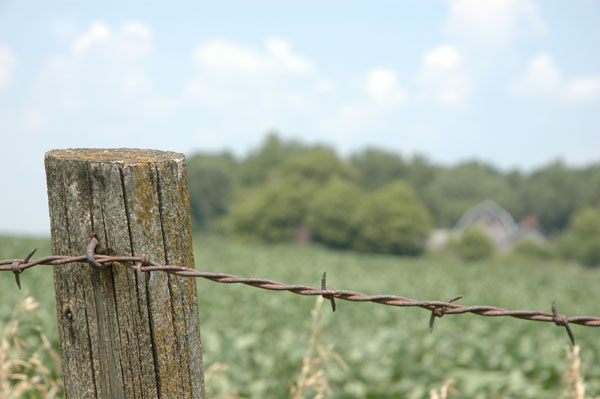Commentary: Pondering the many sides of sustainability
When you start looking at the sustainability issue from its many sides, you come up with more questions than answers.
April 26, 2016

Sustainability—a big word these days. Hard to define and maybe harder to achieve, according to folks in some circles. As an American involved in agriculture, I am proud and somewhat amazed at the ability of farmers and ranchers to embrace more “sustainable” production methods.
Whether no-till or strip-till, pivot or drip, GPS or auto steer, EPDs, genomics or embryo transfer, we are stepping up to the plate. Although many things remain a constant—soil, seed, sun and water, bull and cow, grass and water—our grandfathers would be impressed at how we put these to good use. No big deal, we're just feeding the world.
Profit, oh that’s a dirty little word to some folks. But I say you cannot define or achieve sustainability without profitability. With few exceptions, all the improvements in agricultural production have a profit motive. Produce more or better with fewer inputs or less time and cost.
Should we as consumers always reap the benefits of a farmer’s cost savings or should we be willing to pay a little more to assure him a profit?
Durability, now that’s a little harder to define. How long should we mortals expect anything or everything to last? I think a cell phone should last a lifetime but Apple makes sure mine wears out every year. A concrete ditch sure is durable when new, but in reality after 40 or 50 years, they are broken beyond repair in many areas. Is this sustainable? Where does the money to repair it come from?
Environmental compatibility is difficult to agree on in most cases. I think the cow is a perfect all terrain lawn mower with a four compartment gas tank and automatic fertilizer spreader. A person from Berkeley, Calif., hiking on a forest trail in flip flops, may disagree. However, are buffalo really any more compatible than cattle once they are fenced in? Are buffalo chips on the trail more compatible than cow chips?
How do we as a society do all we can to keep farmers and ranchers off the endangered species list and on the tractor? Is the inheritance tax a wise tax policy to support sustainability? The millions or billions we spend on lawyers, accountants and insurance could sure put a nice roof on the old barn, not to mention what Uncle Sam gets. Does our current regulatory environment support sustainability?
In the last year or two, we have seen a lot of people spend a lot of money trying to define the sustainability of agriculture. Are "big food," "big ag" and "big biz" using this as the latest marketing scheme at the expense of farmers and ranchers? Will Gen X and millennial consumers demand carbon-free beef next year? What do we do then?

70 photos show ranchers hard at work on the farm
Readers have submitted photos of hard-working ranchers doing what they do best - caring for their livestock and being stewards of the land. See reader favorite photos here.
I am proud of many things, too numerous to mention, that farmers and ranchers do today to be more sustainable. I also understand the many reasons we are under the microscope to justify why we do what we do. I hope the time and effort is not spent in vain.
As a citizen with interest in agriculture and water in the arid West, I wonder if our elected officials have our sustainable self-interests at heart? While reading recent articles regarding the United Arab Emirates (UAE) and their growing farmland portfolio in the desert Southwest, it begs the question: is this sustainable? Is this wise long-term policy?
I support free markets and property rights; a fair price between willing buyer and willing seller is a good thing. That being said, I wonder if "mining" our water and soil for a mostly export commodity is sustainable? Should this be treated like other non-renewables such as coal, gas and oil with a severance tax?
It will be a hard sell in Colorado to spend a million dollars to pipe a ditch to save water and then send the saved water down the river so Arizona can send it overseas in a bale of hay. I would be the last person to say no, but is this sustainable policy? Who or how should we pay for water sustainability in the West? Better yet, maybe the UAE should raise hay in Ohio with 30 inches of moisture, learn how to rake and ted between rain and bale when it turns black. Just a thought.
Bill McKee is a rancher near Carbondale, Colo.
You might also like:
How to control sucking & biting lice on cattle
When is the best time to wean? It might be younger than you think
Late-gestation trace mineral supplementation shows promise
7 tips for limiting the spread of invasive species in your pastures
You May Also Like


.png?width=300&auto=webp&quality=80&disable=upscale)
